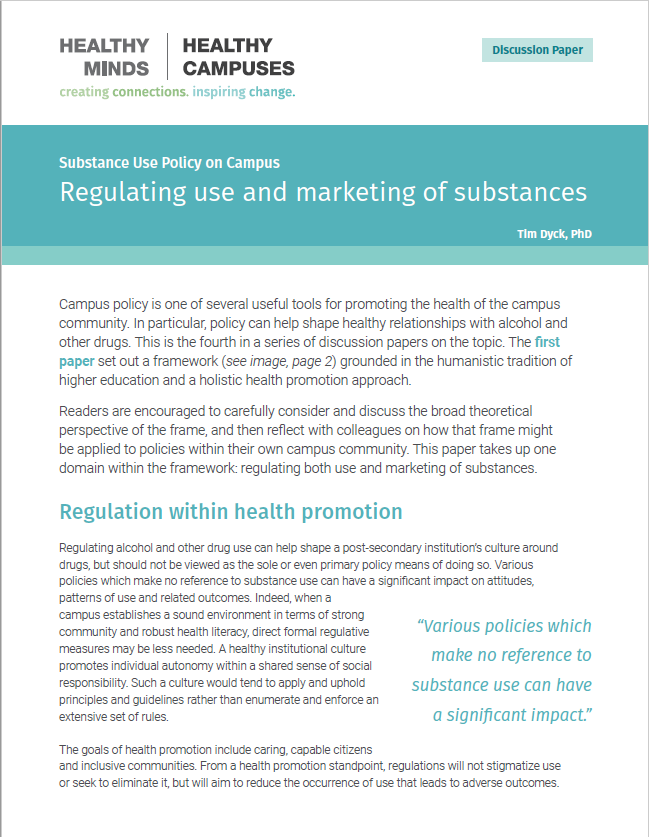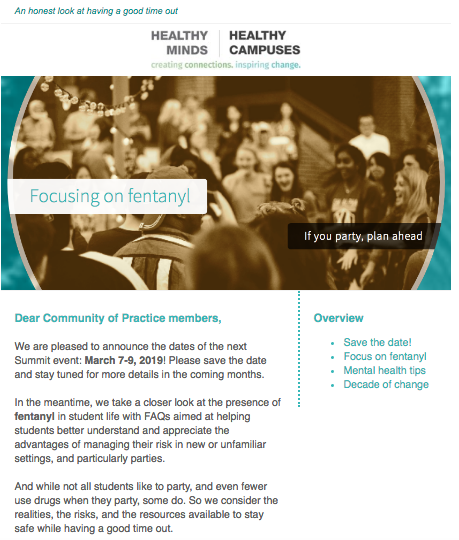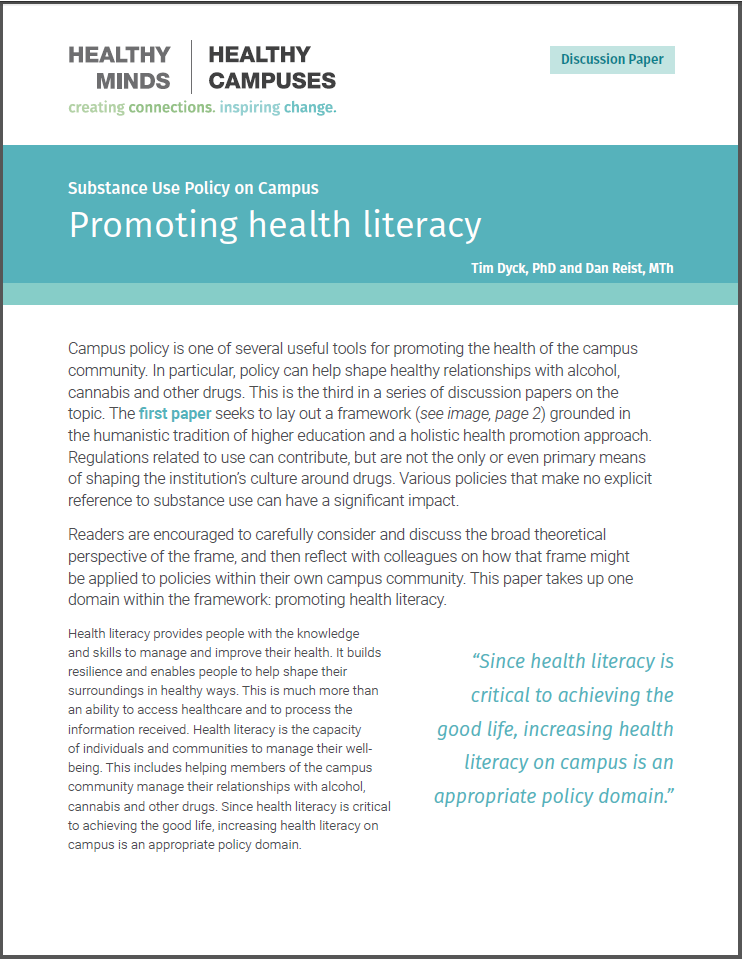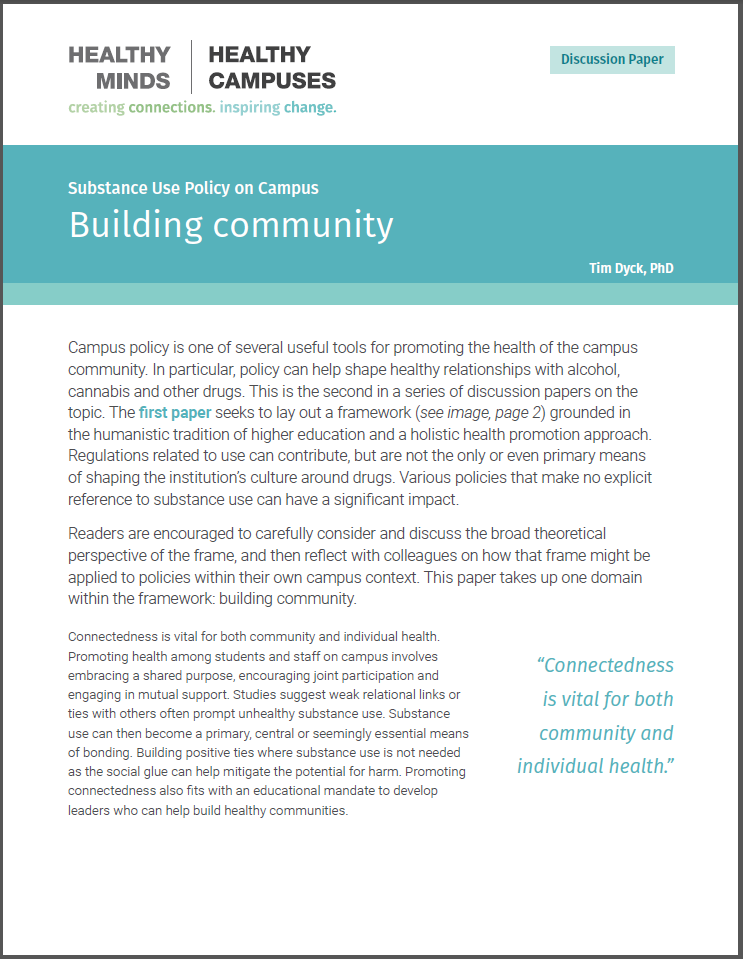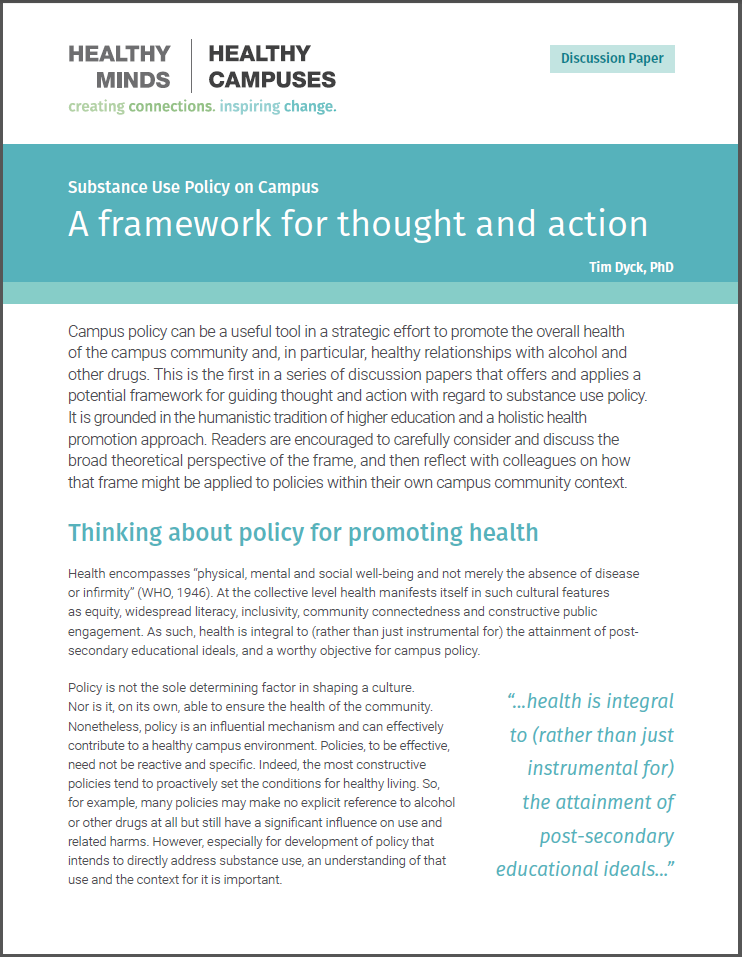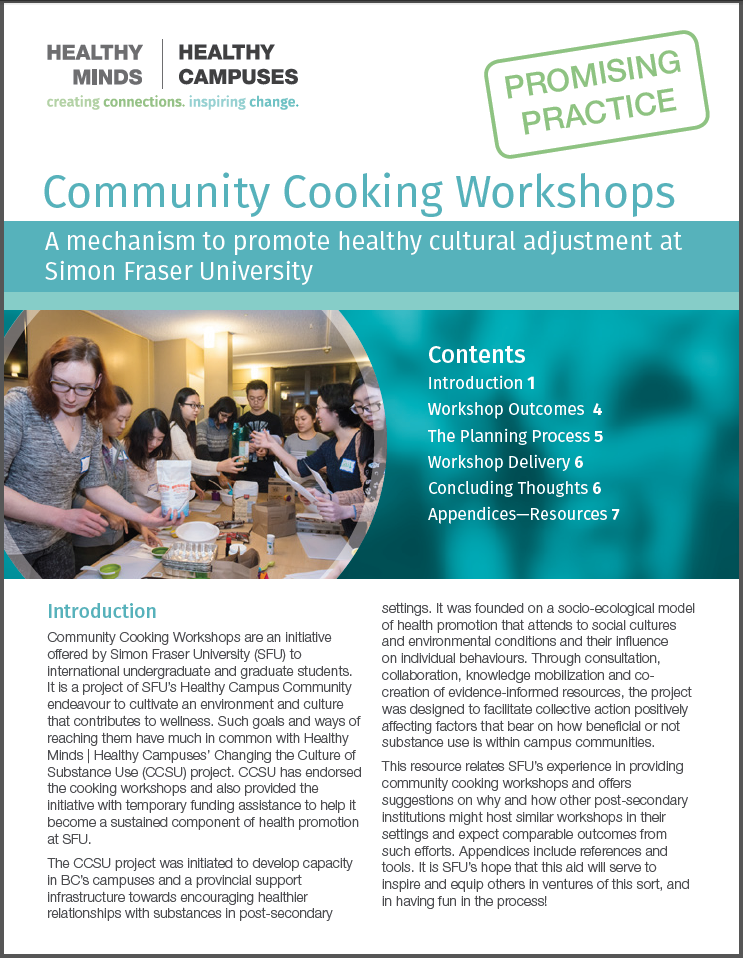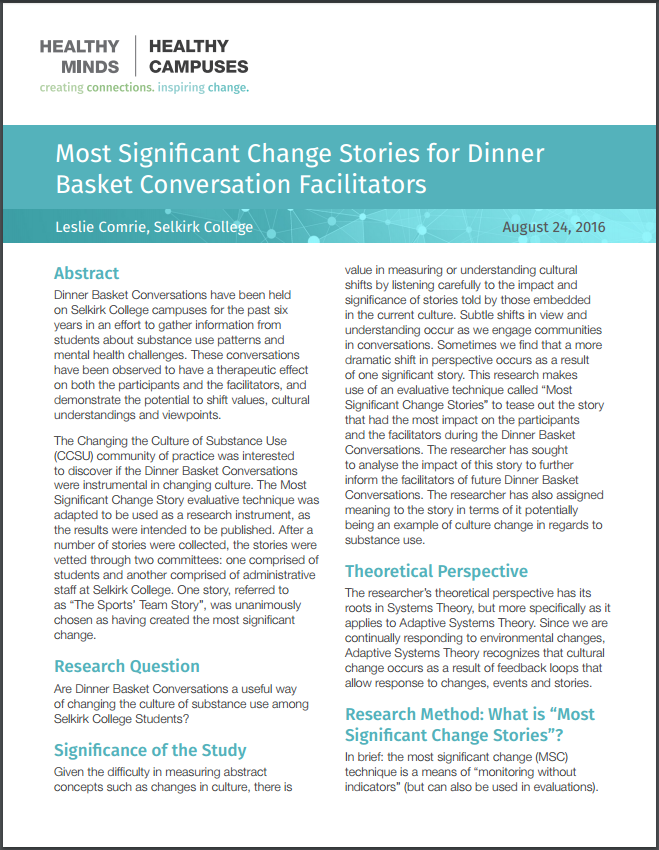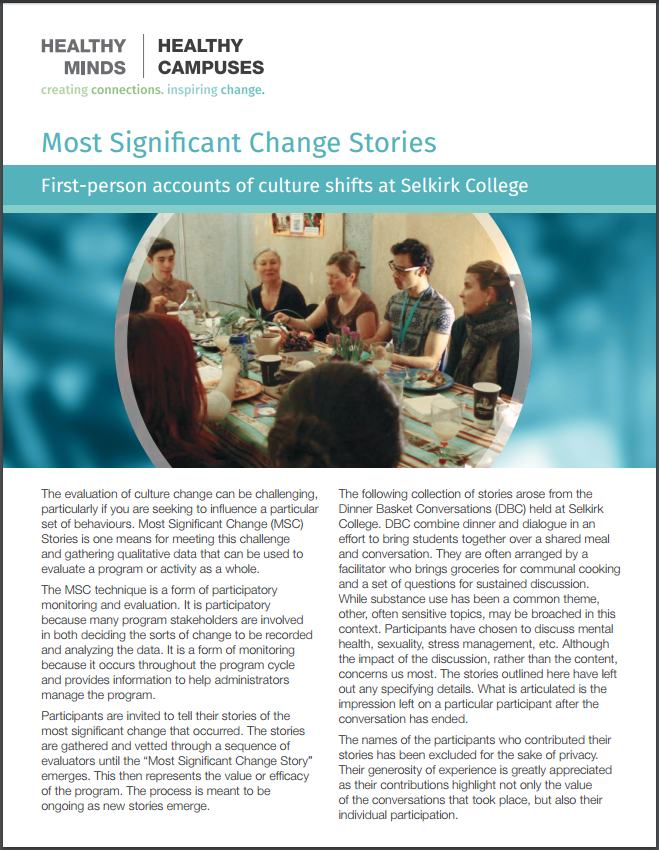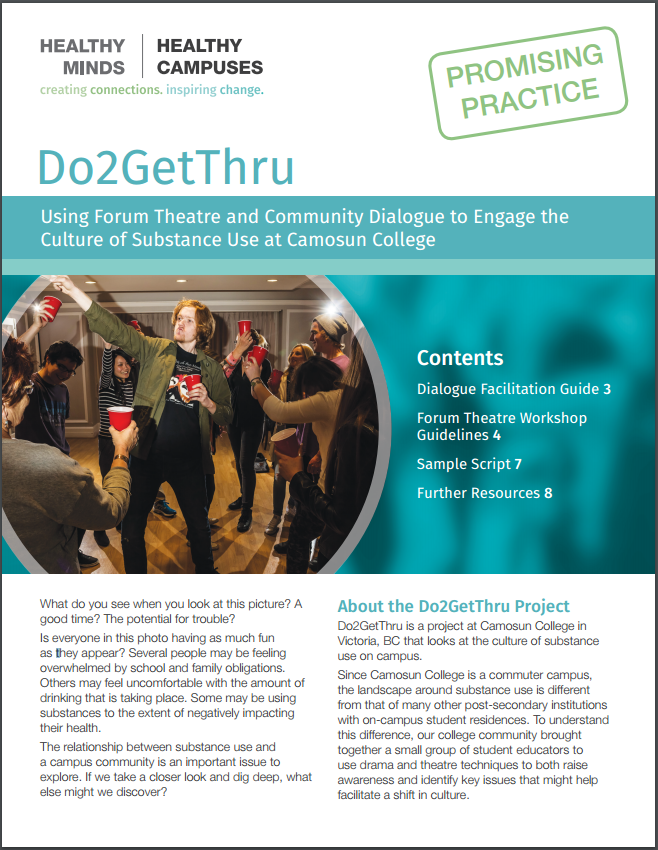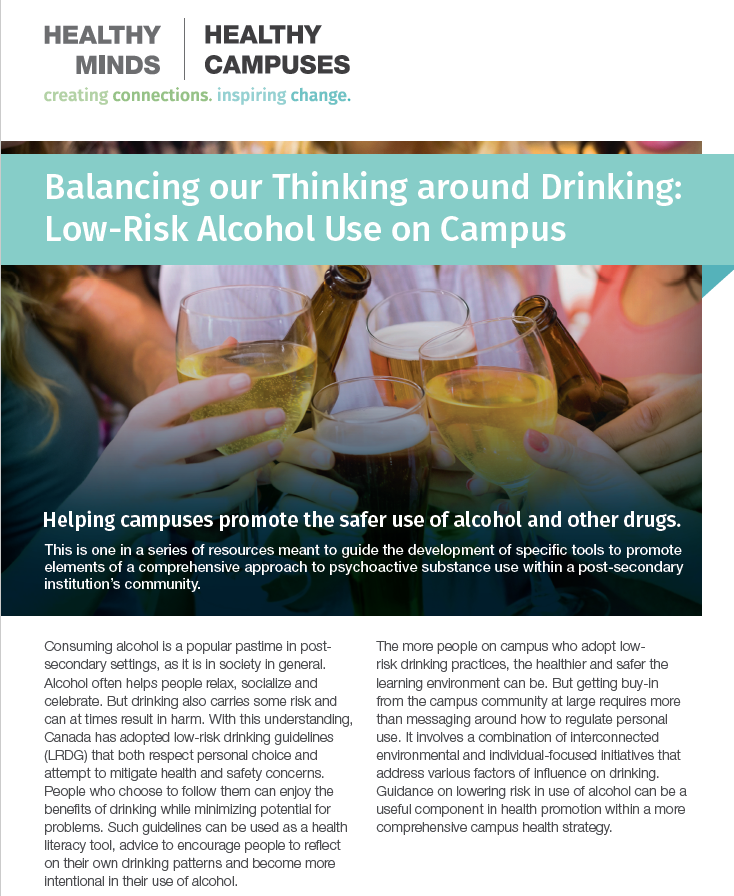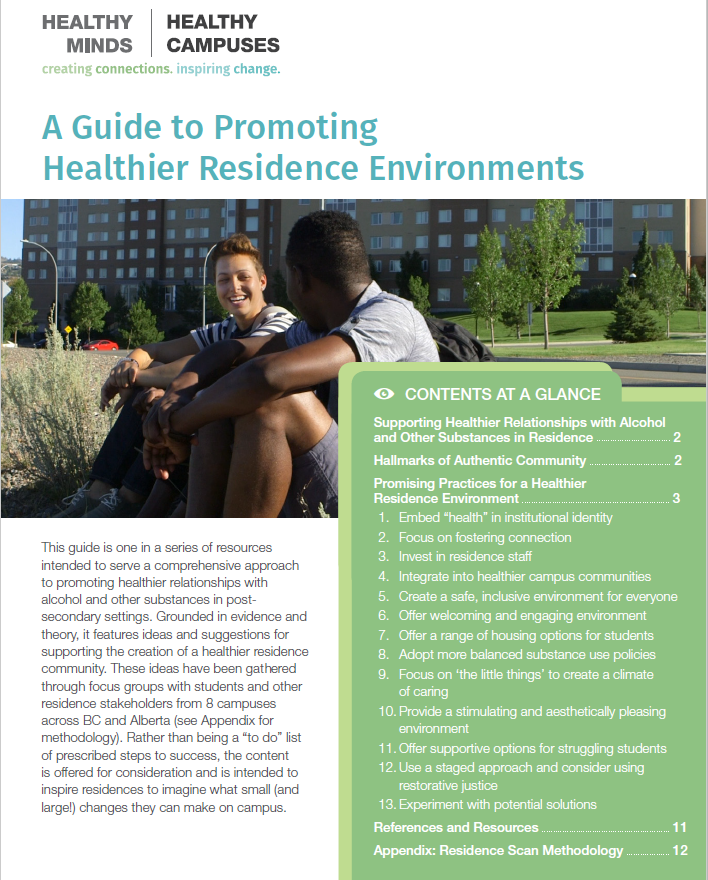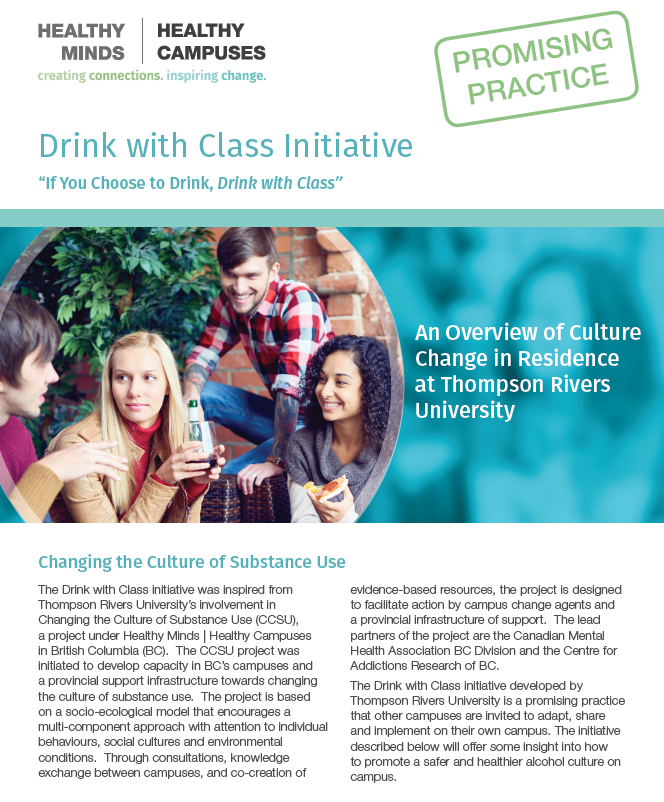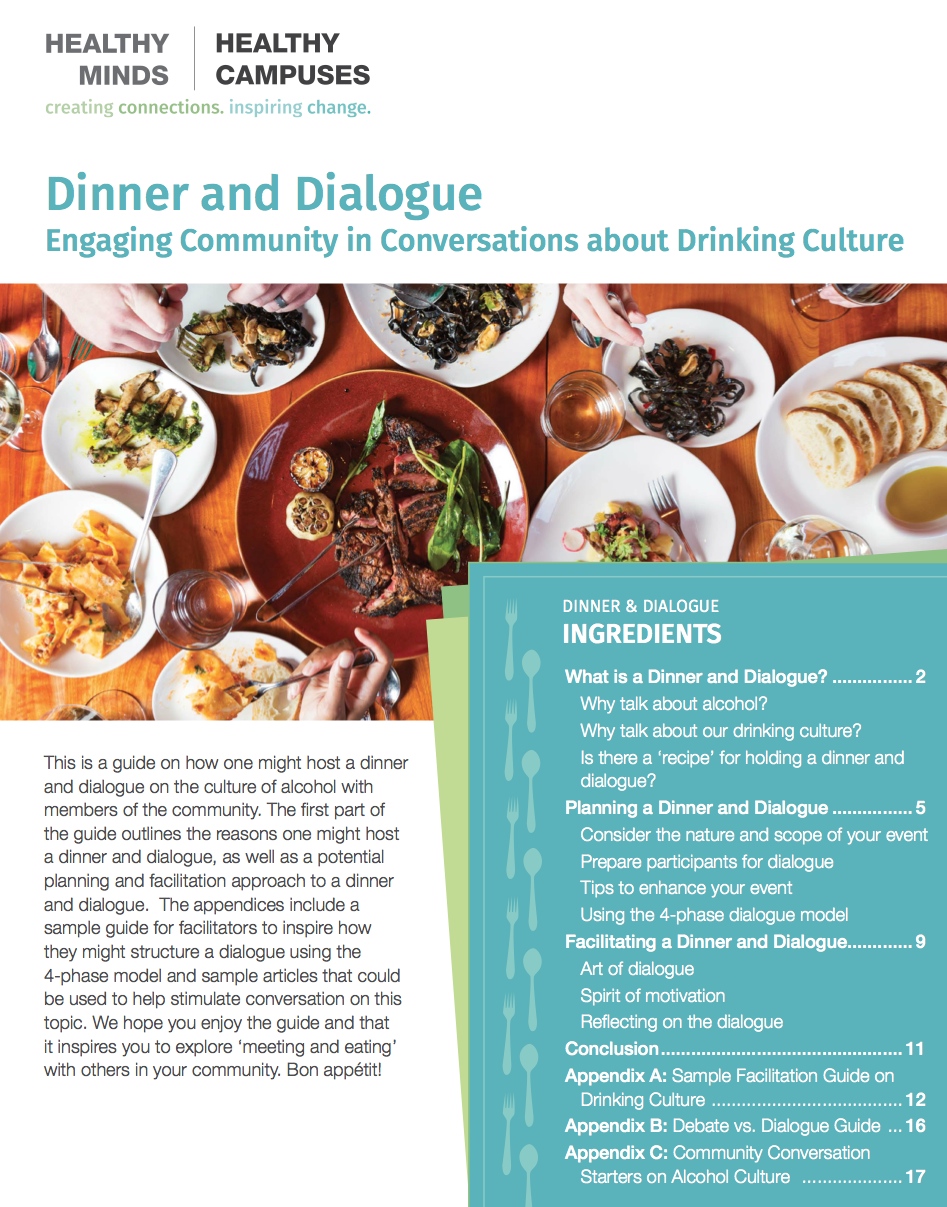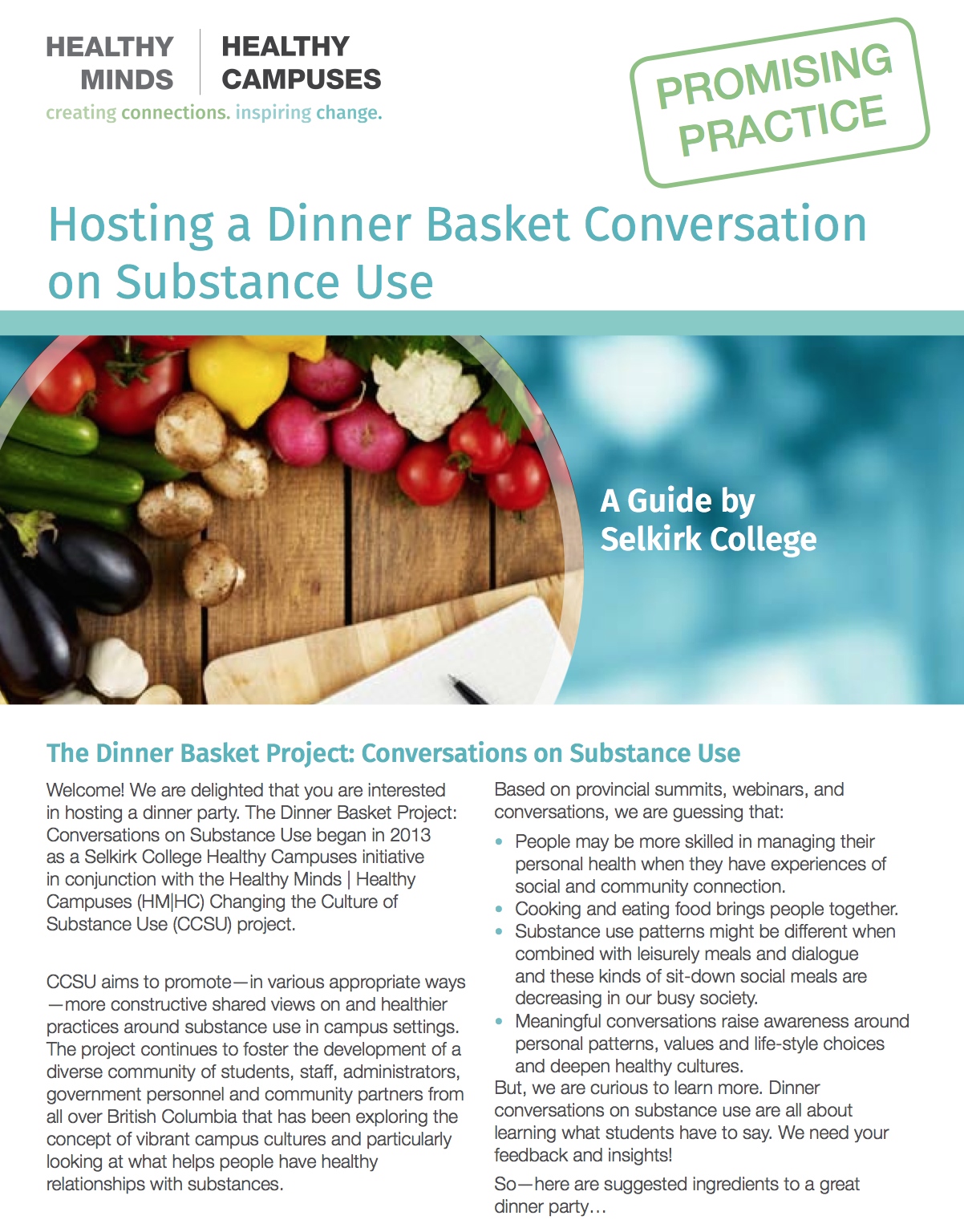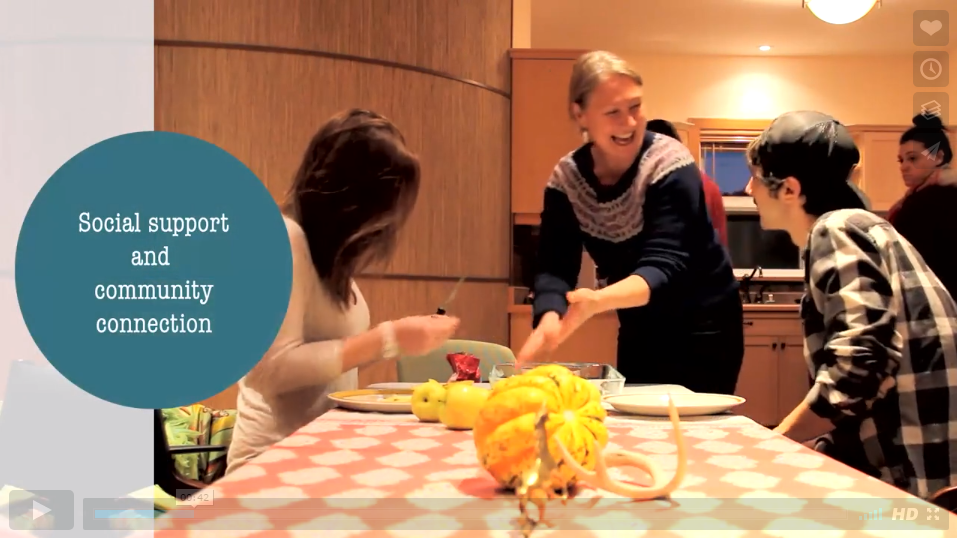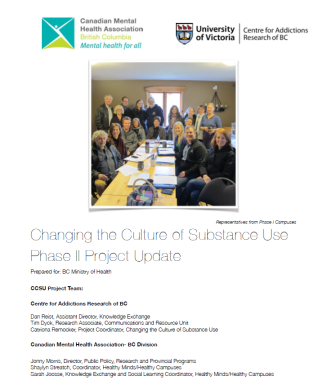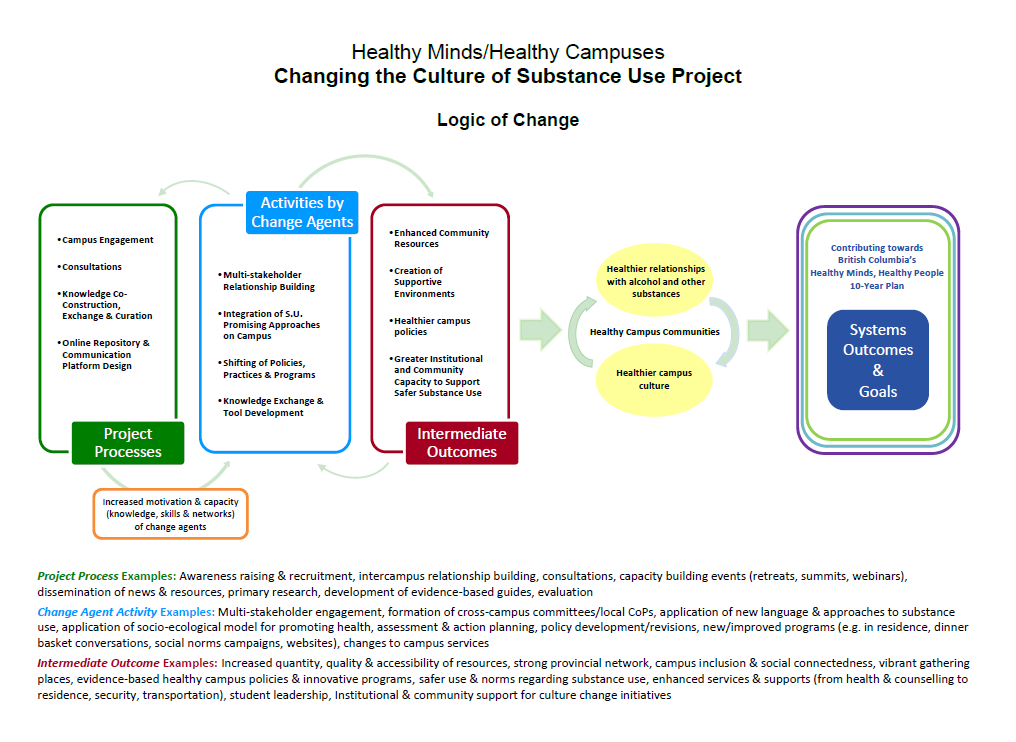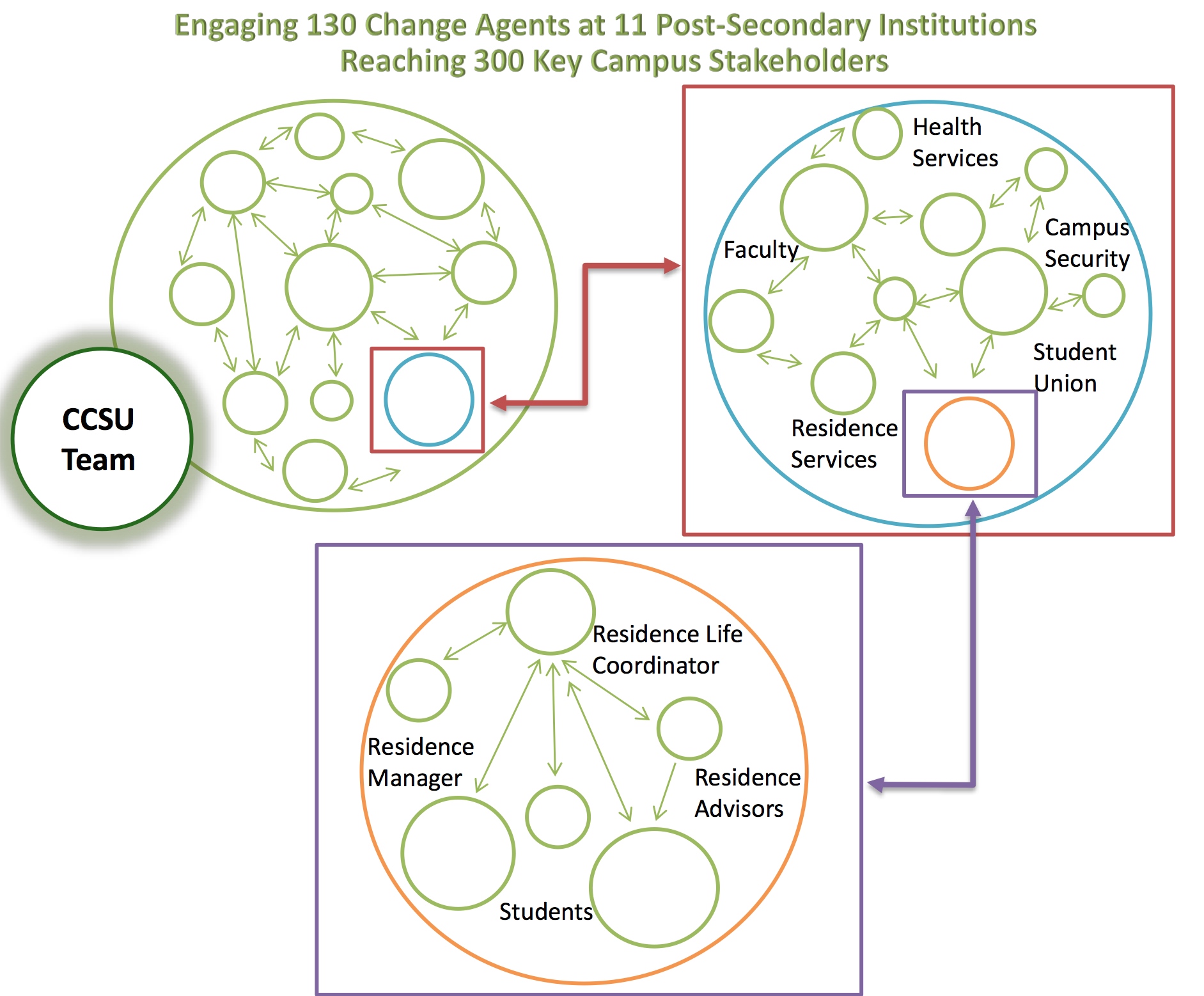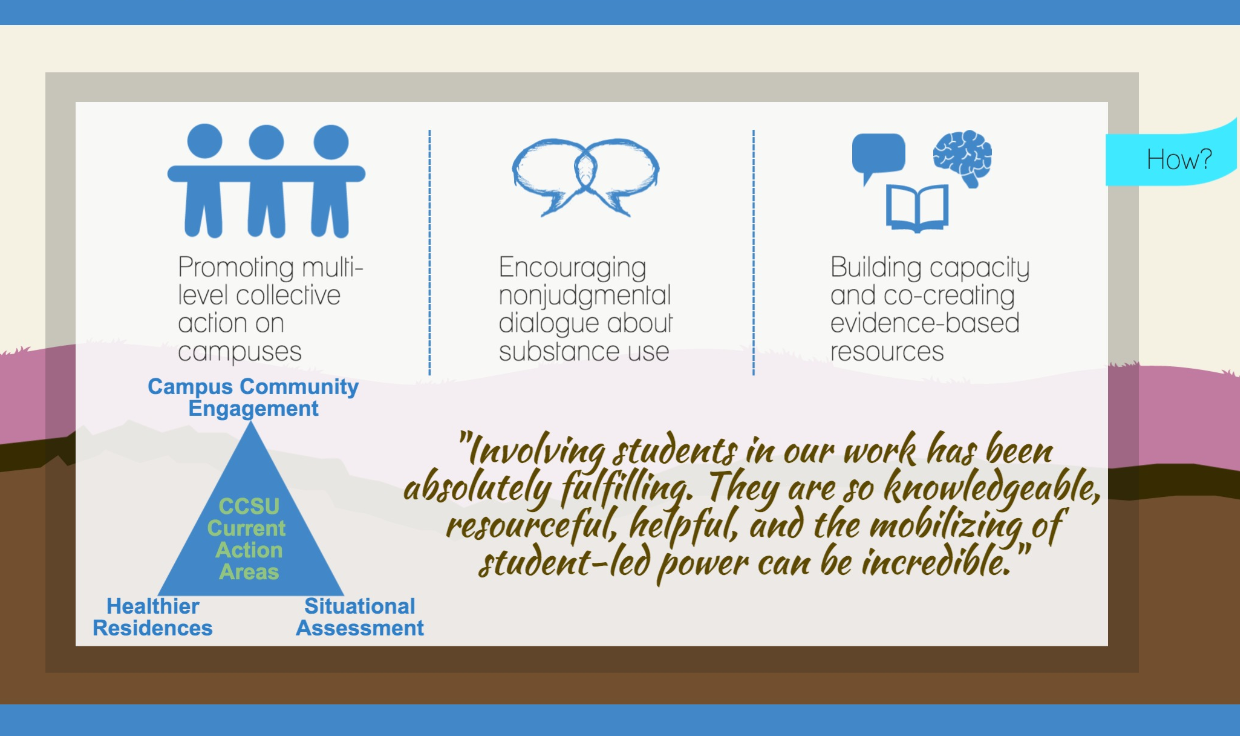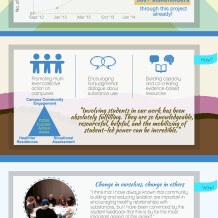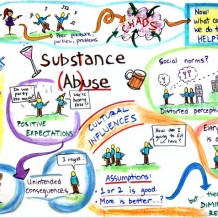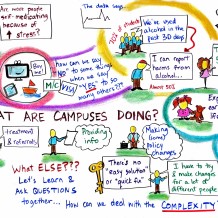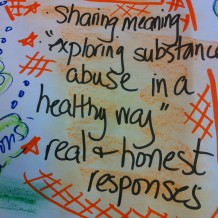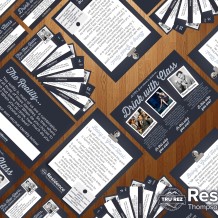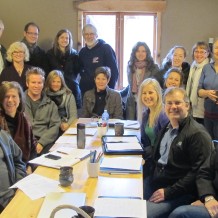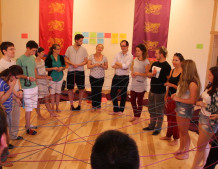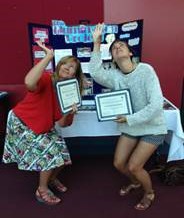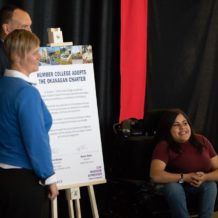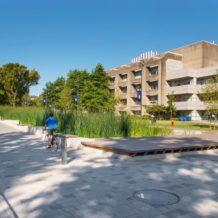Get Involved
Eleven campuses across B.C. actively participated in the project, which can be viewed on the map below. Learn more about how the project involves campuses in images from the CCSU Infographic.
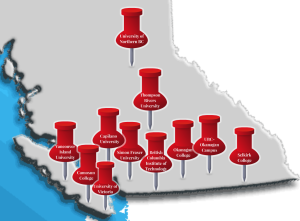
Why Campuses Participated
Involvement in a Focused Learning Community
Participating campus community members experienced a range of interactive and engaging activities designed to support learning around the identified focus for this project – substance use. Nested within the broader Healthy Minds | Healthy Campuses Community of Practice, this focused learning community constructed a learning agenda that helped drive collaborative thinking and work related to campus substance use. The activities of this group aligned with the local realities of each participating campus, helping to ensure that the identified challenges and opportunities for change map closely on to the contexts of the campuses involved. Campus community members participated in face-to-face and virtual activities, learning from one other, while moving forward together in designing strategies and implementing the best thinking related to substance use.
Access to Consultation and Facilitation
This project was resourced by a team of six from CMHA and CARBC (now CISUR). Each team member brought knowledge and experience in the areas of substance use, mental health, health promotion, and learning. This team played an integral role in moving the project forward, providing content and resources, while helping to facilitate capacity development amongst participating campuses. There were also opportunities for tailored consultation and facilitation processes at the individual campus level, as well as opportunities for campuses to experience consultation and facilitated processes among one another.
Co-Development of Approaches and Resources
A key area of this project was the development of approaches and resources that campuses could draw from in the area of substance use. Based on specific activity areas, the project team helped co-develop approaches and resources with campuses, making them available for the learning community to pilot and use. These products were shared in a curated and online resource area that was also made available to the broader Healthy Minds | Healthy Campuses Community of Practice. Participating campuses continue to co-develop resources that are responsive to the unique campus contexts involved in their development, while simultaneously being useful to other campus communities throughout British Columbia. For example, a campus might co-develop healthy policy in the area of availability and pricing of alcohol on campus. A product that might emerge from this process could include the policy itself, as well as a description of how to engage relevant stakeholders in a process that researches and produces effective policy in this area.






